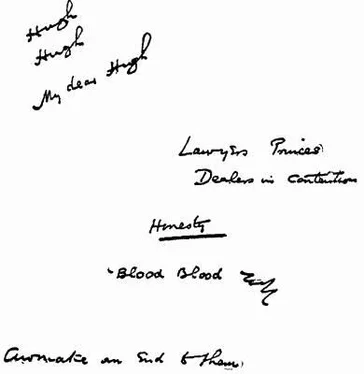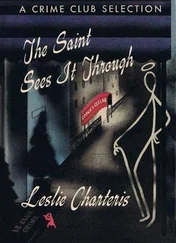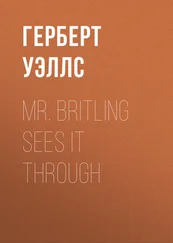Herbert Wells - Mr. Britling Sees It Through
Здесь есть возможность читать онлайн «Herbert Wells - Mr. Britling Sees It Through» весь текст электронной книги совершенно бесплатно (целиком полную версию без сокращений). В некоторых случаях можно слушать аудио, скачать через торрент в формате fb2 и присутствует краткое содержание. Жанр: Классическая проза, на английском языке. Описание произведения, (предисловие) а так же отзывы посетителей доступны на портале библиотеки ЛибКат.
- Название:Mr. Britling Sees It Through
- Автор:
- Жанр:
- Год:неизвестен
- ISBN:нет данных
- Рейтинг книги:4 / 5. Голосов: 1
-
Избранное:Добавить в избранное
- Отзывы:
-
Ваша оценка:
- 80
- 1
- 2
- 3
- 4
- 5
Mr. Britling Sees It Through: краткое содержание, описание и аннотация
Предлагаем к чтению аннотацию, описание, краткое содержание или предисловие (зависит от того, что написал сам автор книги «Mr. Britling Sees It Through»). Если вы не нашли необходимую информацию о книге — напишите в комментариях, мы постараемся отыскать её.
Mr. Britling Sees It Through — читать онлайн бесплатно полную книгу (весь текст) целиком
Ниже представлен текст книги, разбитый по страницам. Система сохранения места последней прочитанной страницы, позволяет с удобством читать онлайн бесплатно книгу «Mr. Britling Sees It Through», без необходимости каждый раз заново искать на чём Вы остановились. Поставьте закладку, и сможете в любой момент перейти на страницу, на которой закончили чтение.
Интервал:
Закладка:
Had every man this sort of crowded catalogue? Was every forty-five-year-old memory a dark tunnel receding from the star of youth? It is surely a pity that life cannot end at thirty. It comes to one clean and in perfect order....
Is experience worth having?
What a clean, straight thing the spirit of youth is. It is like a bright new spear. It is like a finely tempered sword. The figure of his boy took possession of his mind, his boy who looked out on the world with his mother's, dark eyes, the slender son of that whole-hearted first love. He was a being at once fine and simple, an intimate mystery. Must he in his turn get dented and wrinkled and tarnished?
The boy was in trouble. What was the trouble?
Was it some form of the same trouble that had so tangled and tainted and scarred the private pride of his father? And how was it possible for Mr. Britling, disfigured by heedless misadventures, embarrassed by complications and concealments, to help this honest youngster out of his perplexities? He imagined possible forms of these perplexities. Graceless forms. Ugly forms. Such forms as only the nocturnal imagination would have dared present....
Oh, why had he been such a Britling? Why was he still such a Britling?
Mr. Britling sat up in his bed and beat at the bedclothes with his fists. He uttered uncompleted vows, "From this hour forth ... from this hour forth...."
He must do something, he felt. At any rate he had his experiences. He could warn. He could explain away. Perhaps he might help to extricate, if things had got to that pitch.
Should he write to his son? For a time he revolved a long, tactful letter in his mind. But that was impossible. Suppose the trouble was something quite different? It would have to be a letter in the most general terms....
§ 6
It was in the doubly refracting nature of Mr. Britling's mind that while he was deploring his inefficiency in regard to his son, he was also deploring the ineffectiveness of all his generation of parents. Quite insensibly his mind passed over to the generalised point of view.
In his talks with Mr. Direck, Mr. Britling could present England as a great and amiable spectacle of carelessness and relaxation, but was it indeed an amiable spectacle? The point that Mr. Direck had made about the barn rankled in his thoughts. His barn was a barn no longer, his farmyard held no cattle; he was just living laxly in the buildings that ancient needs had made, he was living on the accumulated prosperity of former times, the spendthrift heir of toiling generations. Not only was he a pampered, undisciplined sort of human being; he was living in a pampered, undisciplined sort of community. The two things went together.... This confounded Irish business, one could laugh at it in the daylight, but was it indeed a thing to laugh at? We were drifting lazily towards a real disaster. We had a government that seemed guided by the principles of Mr. Micawber, and adopted for its watchword "Wait and see." For months now this trouble had grown more threatening. Suppose presently that civil war broke out in Ireland! Suppose presently that these irritated, mishandled suffragettes did some desperate irreconcilable thing, assassinated for example! The bomb in Westminster Abbey the other day might have killed a dozen people.... Suppose the smouldering criticism of British rule in India and Egypt were fanned by administrative indiscretions into a flame....
And then suppose Germany had made trouble....
Usually Mr. Britling kept his mind off Germany. In the daytime he pretended Germany meant nothing to England. He hated alarmists. He hated disagreeable possibilities. He declared the idea of a whole vast nation waiting to strike at us incredible. Why should they? You cannot have seventy million lunatics.... But in the darkness of the night one cannot dismiss things in this way. Suppose, after all, their army was more than a parade, their navy more than a protest?
We might be caught—It was only in the vast melancholia of such occasions that Mr. Britling would admit such possibilities, but we might be caught by some sudden declaration of war.... And how should we face it?
He recalled the afternoon's talk at Claverings and such samples of our governmental machinery as he chanced to number among his personal acquaintance. Suppose suddenly the enemy struck! With Raeburn and his friends to defend us! Or if the shock tumbled them out of power, then with these vituperative Tories, these spiteful advocates of weak tyrannies and privileged pretences in the place of them. There was no leadership in England. In the lucid darkness he knew that with a terrible certitude. He had a horrible vision of things disastrously muffled; of Lady Frensham and her Morning Post friends first garrulously and maliciously "patriotic," screaming her way with incalculable mischiefs through the storm, and finally discovering that the Germans were the real aristocrats and organising our national capitulation on that understanding. He knew from talk he had heard that the navy was weak in mines and torpedoes, unprovided with the great monitors needed for a war with Germany; torn by doctrinaire feuds; nevertheless the sea power was our only defence. In the whole country we might muster a military miscellany of perhaps three hundred thousand men. And he had no faith in their equipment, in their direction. General French, the one man who had his entire confidence, had been forced to resign through some lawyer's misunderstanding about the Irish difficulty. He did not believe any plans existed for such a war as Germany might force upon us, any calculation, any foresight of the thing at all.
Why had we no foresight? Why had we this wilful blindness to disagreeable possibilities? Why did we lie so open to the unexpected crisis? Just what he said of himself he said also of his country. It was curious to remember that. To realise how closely Dower House could play the microcosm to the whole Empire....
It became relevant to the trend of his thoughts that his son had through his mother a strong strain of the dark Irish in his composition.
How we had wasted Ireland! The rich values that lay in Ireland, the gallantry and gifts, the possible friendliness, all these things were being left to the Ulster politicians and the Tory women to poison and spoil, just as we left India to the traditions of the chattering army women and the repressive instincts of our mandarins. We were too lazy, we were too negligent. We passed our indolent days leaving everything to somebody else. Was this the incurable British, just as it was the incurable Britling, quality?
Was the whole prosperity of the British, the far-flung empire, the securities, the busy order, just their good luck? It was a question he had asked a hundred times of his national as of his personal self. No doubt luck had favoured him. He was prosperous, and he was still only at the livelier end of middle age. But was there not also a personal factor, a meritorious factor? Luck had favoured the British with a well-placed island, a hardening climate, accessible minerals, but then too was there not also a national virtue? Once he had believed in that, in a certain gallantry, a noble levity, an underlying sound sense. The last ten years of politics had made him doubt that profoundly. He clung to it still, but without confidence. In the night that dear persuasion left him altogether.... As for himself he had a certain brightness and liveliness of mind, but the year of his fellowship had been a soft year, he had got on to The Times through something very like a misapprehension, and it was the chances of a dinner and a duchess that had given him the opportunity of the Kahn show. He'd dropped into good things that suited him. That at any rate was the essence of it. And these lucky chances had been no incentive to further effort. Because things had gone easily and rapidly with him he had developed indolence into a philosophy. Here he was just over forty, and explaining to the world, explaining all through the week-end to this American—until even God could endure it no longer and the smash stopped him—how excellent was the backwardness of Essex and English go-as-you-please, and how through good temper it made in some mysterious way for all that was desirable. A fat English doctrine. Punch has preached it for forty years.
Читать дальшеИнтервал:
Закладка:
Похожие книги на «Mr. Britling Sees It Through»
Представляем Вашему вниманию похожие книги на «Mr. Britling Sees It Through» списком для выбора. Мы отобрали схожую по названию и смыслу литературу в надежде предоставить читателям больше вариантов отыскать новые, интересные, ещё непрочитанные произведения.
Обсуждение, отзывы о книге «Mr. Britling Sees It Through» и просто собственные мнения читателей. Оставьте ваши комментарии, напишите, что Вы думаете о произведении, его смысле или главных героях. Укажите что конкретно понравилось, а что нет, и почему Вы так считаете.






